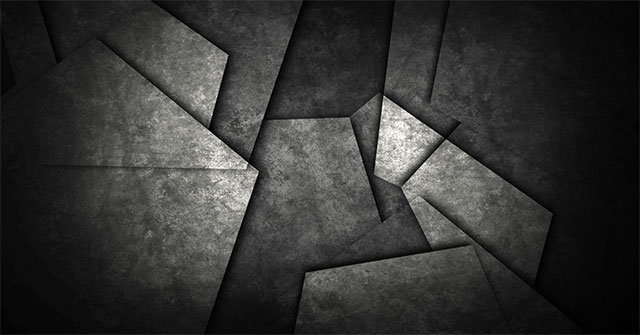Trong thế giới của tập gym và thể hình, việc chụp ảnh để khoe body không chỉ là một cách để ghi lại thành quả tập luyện mà còn là một phần không thể thiếu của văn hóa sống ảo hiện đại. Dưới đây là 5 cách chụp ảnh gym nam khoe body đẹp, mỗi cách mang đến một phong cách và cảm xúc riêng, từ sự mạnh mẽ và tự tin đến sự tinh tế và cá nhân hóa. Hãy cùng Aloha Media khám phá và lựa chọn phong cách chụp ảnh phù hợp với bạn nhé!
Tạo dáng ngồi nghiêng chụp trong gương
Tạo dáng ngồi nghiêng và chụp ảnh trong gương tại phòng gym là một cách tuyệt vời để thể hiện sự sáng tạo và cá nhân hóa trong việc tạo ra những bức ảnh độc đáo. Khi thực hiện, các chàng trai có thể tìm kiếm một chiếc gương phù hợp với kích thước và góc nhìn để tạo ra bố cục hấp dẫn cho bức ảnh. Việc chọn một gương không bị mờ hoặc bẩn là cực kỳ quan trọng để đảm bảo rằng hình ảnh sẽ được chụp một cách rõ ràng và chất lượng.
Khi ngồi nghiêng, quan trọng nhất là phải duy trì đúng tư thế và độ thẳng lưng, tạo nên sự tự tin và mạnh mẽ. Bằng cách này, cơ bắp ở cả phần trên và dưới cơ thể sẽ trở nên nổi bật và hấp dẫn hơn trong gương. Đảm bảo rằng cơ bắp được thể hiện một cách rõ ràng và tự nhiên để tạo nên một bức ảnh ấn tượng và thú vị. Với những bước đơn giản này, bạn có thể sở hữu một bức ảnh tại phòng gym không chỉ để sống ảo mà còn để thể hiện sự phong cách và cá nhân động.

Tạo dáng khoe cơ bắp cùng người yêu
Tạo dáng chụp ảnh khoe cơ bắp cùng người yêu không chỉ là một cách thú vị để ghi lại khoảnh khắc đẹp và đầy ý nghĩa, mà còn là một hình thức tương tác thú vị giữa hai người. Điều này không chỉ làm tăng thêm sự gắn kết giữa các cặp đôi mà còn tạo ra những bức ảnh độc đáo và ấn tượng.
Bắt đầu bằng việc nhờ người yêu của bạn trở thành “phó nhảy” cho bức ảnh này, bạn có thể tạo ra một khung cảnh độc đáo bằng cách sử dụng gương. Trong khi bạn nắm tay và cầm máy ảnh, người yêu của bạn có thể đứng ở phía sau, quay lưng lại và khoe cơ bắp của mình. Điều này không chỉ là một cách thú vị để ghi lại sự tự tin và sức mạnh của người bạn đồng hành mà còn tạo ra một bức ảnh độc đáo, thể hiện sự gắn kết và tình cảm giữa hai người.
Bằng cách này, bạn không chỉ có được những bức ảnh đẹp mắt mà còn tạo ra những kỷ niệm đáng nhớ và ý nghĩa với người yêu của mình. Đồng thời, việc chia sẻ những bức ảnh này trên mạng xã hội cũng là cách tuyệt vời để khoe khoang tình yêu và sức mạnh của mối quan hệ của bạn, cùng với việc chăm sóc và tôn trọng cơ thể của nhau.

Tạo dáng lau mồ hôi sau khi tập
Trước khi bắt đầu chụp ảnh, hãy đảm bảo rằng bạn đã hoàn thành một buổi tập luyện đầy đủ để mồ hôi có thể chảy đều khắp cơ thể. Để kích thích sự ra mồ hôi một cách hiệu quả, bạn có thể thực hiện các bài tập cardio như chạy bộ, đạp xe, hoặc thậm chí là tập các động tác có tính năng đốt mỡ như burpee, plank, đảo bụng… Những bài tập này không chỉ giúp tăng cường sự đốt cháy calo mà còn giúp kích thích sự ra mồ hôi nhanh chóng và hiệu quả.
Khi đã hoàn thành buổi tập và cảm thấy đầy đủ mồ hôi, bạn có thể sử dụng chiếc áo của mình để lau mồ hôi. Tuy nhiên, hãy nhớ giữ vẻ tự nhiên và thoải mái. Không cần phải cố gắng quá mức để “khoe” vẻ cuốn hút hay cơ bắp 6 múi một cách quá lên làm mất đi sự tự nhiên và chuyên nghiệp của bức ảnh. Sự tự tin và sự tự nhiên trong cử động và biểu hiện sẽ làm cho bức ảnh trở nên sống động và thu hút hơn, đồng thời thể hiện được sự chuyên nghiệp và cam kết của bạn đối với việc tập luyện và chăm sóc sức khỏe cá nhân.

Tạo dáng khoe cơ vai sau
Khi bạn muốn tạo dáng để khoe lưng và vai sau, không chỉ đơn giản là đứng đó và nắm vững tư thế. Thực sự, quá trình này đòi hỏi sự chú trọng đến việc duy trì tư thế tự nhiên và thoải mái, nhưng cũng cần phải có sự tập trung và nỗ lực để làm nổi bật các đường cong và định hình cơ bắp một cách tự nhiên và hài hòa.
Trong quá trình tạo dáng, hãy tập trung vào việc làm nổi bật cơ bắp lưng và vai sau bằng cách kích thích sự căng thẳng và định hình cơ bắp. Bằng cách tập trung vào việc kéo và căng cơ trong quá trình tạo dáng, bạn có thể tạo ra một bức ảnh thể hiện được sức mạnh và vẻ đẹp tự nhiên của cơ thể. Điều này không chỉ tôn lên vẻ đẹp cơ thể mà còn phản ánh sự cam kết và nỗ lực của bạn đối với việc duy trì một phong cách sống lành mạnh và tập luyện hiệu quả.
Với cách tạo dáng này, bạn không chỉ khoe trọn vẹn vẻ đẹp của cơ vai sau mà còn thể hiện được sự tự tin và quyết tâm của mình trong việc chăm sóc sức khỏe và phát triển bản thân. Aloha Media tin rằng, với sự chăm chỉ và nỗ lực, bất kỳ ai cũng có thể có được một vóc dáng săn chắc và cơ bắp đẹp mắt.

Tạo dáng chụp ảnh gym nam theo trend
Hiện nay, trên mạng xã hội đã xuất hiện nhiều trend tạo dáng chụp ảnh gym nam vô cùng độc đáo và hấp dẫn. Sự linh hoạt, sức mạnh và dáng vẻ trong các bức ảnh này không chỉ thu hút sự chú ý mà còn thu về hàng triệu lượt thích từ cộng đồng mạng.
Ngoài những dáng tạo dáng cơ bản, bạn cũng có thể tham khảo một số gợi ý dưới đây để tạo ra những bức ảnh gym nam độc đáo và đầy sức hút:
- Power pose: Tạo dáng theo phong cách power pose là một xu hướng phổ biến trong chụp ảnh gym nam. Đứng thẳng, chân hơi rộng hơn vai, tay đặt ở hông hoặc đặt hai tay lên ngực. Tạo dáng này thể hiện sự tự tin và sức mạnh của bạn.
- Action shot: Hãy tạo dáng trong khi bạn đang thực hiện một động tác tập luyện, như đẩy tạ, nhảy lên khỏi hộp, hoặc bước đi qua lốp nhảy. Điều này tạo ra hiệu ứng động đậm chất thể thao và đầy năng lượng.
- Outdoor fitness: Nếu có cơ hội, hãy tạo dáng chụp ảnh ngoài trời trong không gian tập luyện. Bạn có thể chụp ảnh khi đang chạy bộ, leo núi, hoặc tập các bài tập ngoài trời khác. Tạo dáng này mang lại không gian tự nhiên và sự kết hợp giữa thể thao và thiên nhiên.
- Street style gym: Khi tạo dáng chụp ảnh gym, bạn có thể thử tạo dáng trong trang phục street style. Điều này tạo ra sự phá cách và cá nhân hóa trong bức ảnh. Bạn có thể kết hợp áo phông, quần jean và giày thể thao để tạo nên phong cách riêng.
- Detail shots: Ngoài việc tạo dáng toàn thân, hãy chụp ảnh các chi tiết đặc biệt của cơ thể sau khi tập luyện, như cơ bắp tay, cơ ngực hoặc các đường gân nổi bật. Sử dụng cận cảnh và ánh sáng chi tiết để làm nổi bật những điểm mạnh của cơ thể.
- Express emotions: Không chỉ tạo dáng cơ bản, hãy thể hiện cảm xúc và tinh thần của bạn trong bức ảnh. Tự tin, quyết tâm và sự hứng khởi là những cảm xúc thường thấy trong chụp ảnh gym nam. Điều này tạo ra sự gần gũi và chân thực trong các bức ảnh của bạn.

Lời kết
Như vậy, những cách chụp ảnh gym nam khoe body đẹp đã trở thành một phần quan trọng của cuộc sống hiện đại, không chỉ là cách để ghi lại những cống hiến và thành tựu trong tập luyện mà còn là một cách để thể hiện phong cách và cá nhân hóa. Quan trọng nhất, hãy nhớ rằng việc chụp ảnh không chỉ là về việc khoe thân hình mà còn là về việc tự tin, tôn trọng và yêu quý bản thân. Hãy tận hưởng mọi khoảnh khắc và cảm xúc mà các bức ảnh mang lại, và hãy tiếp tục chăm chỉ và đam mê trong hành trình tập luyện của bạn!
![]()











